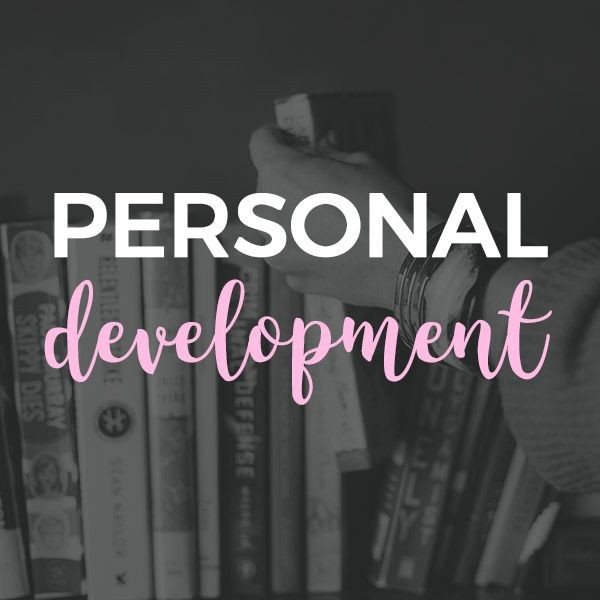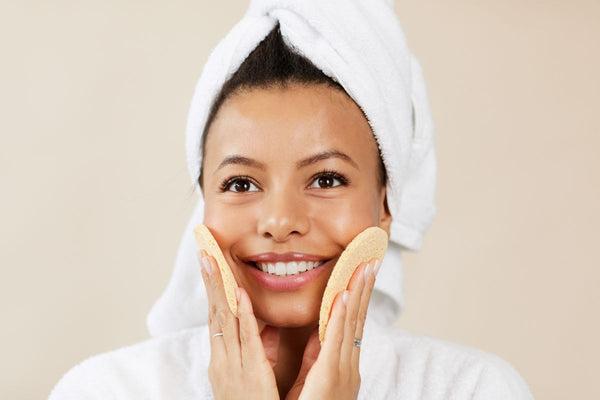Health
How and why we can create a good well being through personal development.
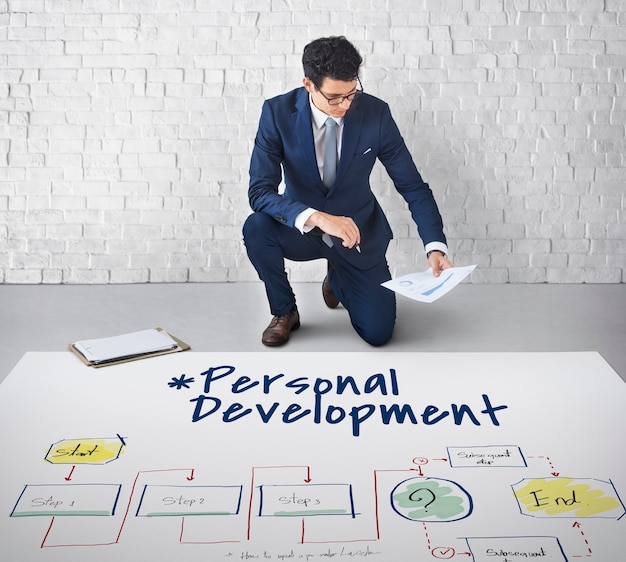
Personal Development is a powerful tool to have a deep sense of well being, including not only our physical health but also our mental and emotional resilience.
When we actively engage in personal growth, we can have a wealth of benefits that transform our lives from the inside out.
Why personal development matters?
Personal Development is no longer a luxury, but a necessity. When we invest in our own growth and well being, we can have a deeper sense of purpose and resilience.
Personal Development is not just about self improvement; it’s about having the right skills, mindset and habits necessary to thrive in all areas of life.
Focusing on personal development, let’s tap into four key benefits that transform our lives from the inside out:
1.Self Awareness:
Brene Brown, a research professor and a popular author has spoken publicly about how self awareness transformed her life. In her book, “The Gifts of Imperfection” she made a quote which says, “ The greatest barrier to self awareness is our tendency to avoid the discomfort that comes with confronting our own flaws and weaknesses. But it’s precisely this discomfort that can spark the most profound growth and transformation,”
Brene Brown story and quote shows us how self awareness can help us:
1. Recognize and accept our flaws.
2. Develop a more authentic and compassionate relationship with themselves.
3. Embrace imperfections.
4. Cultivate personal growth and transformation.
Being self aware allows us to understand our values, standards, and weaknesses. This allows us to make informed choices, set meaningful goals and develop a positive self image.
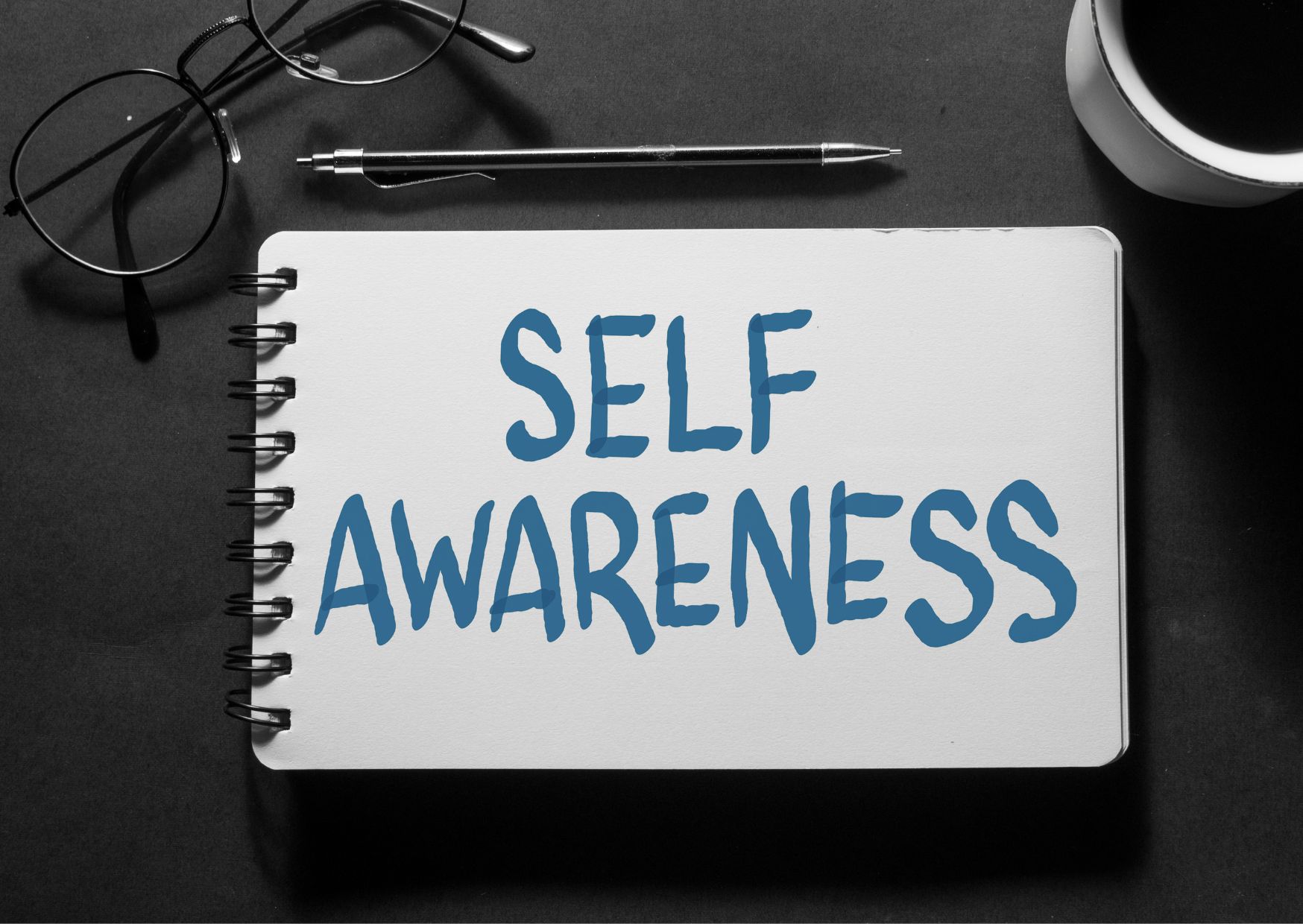
2. Resilience:
Two weeks after Sarah Williams lost her parents, she faces severe hardship when she loses her job due to the company restructuring. These challenges affected Sarah but she chose not to give up. Instead of backing out, Sarah uses her resilience skills to:
1. Take care of her emotional wellbeing.
2. Update her skills and resume.
3. Network with former colleagues and industry connections.
4. Landed a new job within two months.
This is what resilience skills means. It helps us to develop coping skills. We will be able to learn from our failures and embrace challenges that increase our ability to navigate life’s obstacles with confidence.

3. Mindfulness:
According to Mark Williams in his book “Mindfulness: A Practical Guide to Finding Peace in a Frantic World” Mindfulness is not a means of making your mind quiet; it’s a means of entering into the quiet that’s already there – buried under the 50,000 thoughts the average person thinks every day.
Mindfulness enables us to reduce stress, enhance our focus and provide a deeper connection with ourselves and others.

4. Purpose:
A study published in the Journal of Positive Psychology found that having a sense of purpose in life is associated with greater life satisfaction, high self esteem, better mental and physical health and increased resilience.
Having a clear purpose allows us to discover our passions and values which gives us direction, motivation and a sense of fulfillment.
Having revealed why personal development matters, here are the four ways in which you can create a good well being through Personal Development.

How to Create Good Well-being through Personal Development:
1. Set Intentions:
Setting intentions is the act of defining and clarifying what you want to achieve in your life. Setting intentions helps you to identify areas for improvement and set specific and achievable goals.

2. Practice- Self Care:
Practicing self care allows you to engage in activities that nourish your mind, body, and spirit, such as exercises, meditation, and spending time in nature.

3. Develop Emotional Intelligence:
Developing emotional intelligence enables you to learn how to recognize, understand, and manage your emotions to improve relationships and decision making.
4. Cultivate Positive Habits:
Cultivating a positive habit allows you to replace your negative patterns with healthy habits, such as gratitude practices, journalling, or reading.
Now that we have explored the benefits of personal development, let’s tap into the advantages of mental health and positivity.
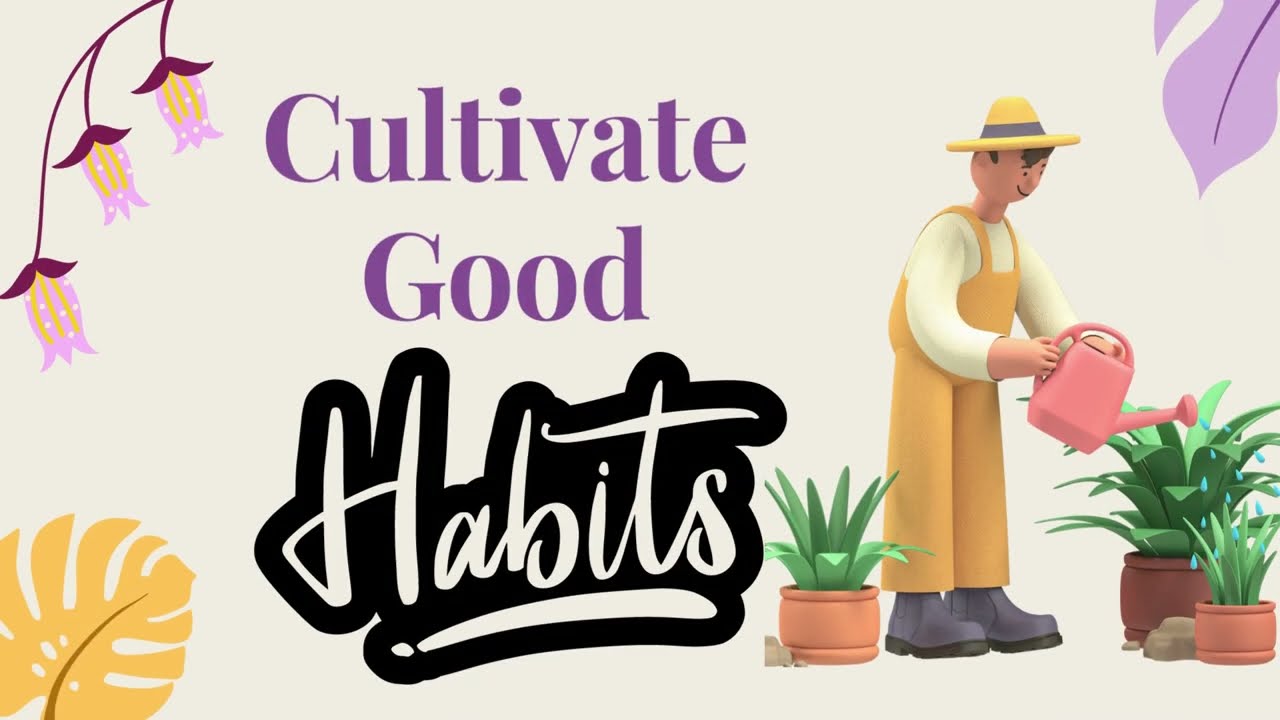
Here are list of a few advantages of mental health and positivity:
1.Mental health boost your self esteem:
People who struggle with mental health issues constantly doubt themselves. Once you have good mental health, it helps increase your self esteem. You start to feel confident of yourself and people with good mental health are more likely to focus on positive things rather than feeling less or thinking negatively of themselves.

2. Mental health helps in improving healthy relationships:
Nurturing mental health and positivity can significantly increase our relationships with others. When we feel good about ourselves and have a positive outlook, we:
≈ Communicate more effectively.
≈ Listen actively.
≈ Empathize with others.
≈ Build a stronger and meaningful connection.
Our relationships become more authentic and fulfilling. This leads to a stronger social support network and a greater sense of overall well being.

3. Mental health enhances your productivity:
Having good mental health allows you to work more effectively and produce work of a high level of excellence.

4. Other advantages of mental health includes:
— Improved physical health.
— Enhanced creativity.
— A heightened sense of purpose.
— A greater sense of inner peace.
— Reduce stress and anxiety.
— Improved mood.
Finally, personal development, mental health, and positivity are intertwined. They create a transformative impact on our lives. Invention in personal growth, cultivating self awareness, resilience, mindfulness and purpose can lead to improved mental health and positivity.
This, in turn, improves our relationships, creativity, productivity and overall well being. Always remember that personal development is not a solo journey: it’s a path that ties together the threads of mental health and positivity.
Start your personal development journey today, and watch how it transforms your life from the inside out.
Read also: Benefits of sleep on your mental health
Benefits of caring for our mental wellness
Health
Workout Routines That Support Bones Health

Strong bones depend on more than just calcium or supplements. Research shows that bones respond to physical stress: when muscles and weight-bearing activities challenge the skeleton, bone tissue becomes denser and stronger. To protect skeletal health over the long term, exercise should combine weight-bearing activity, resistance training, and balance work. Together, these exercises address the main risk factors for fractures: low bone density, weak muscles, and poor coordination.

Photo Credit – Google
Weight-bearing activity doesn’t need to be extreme to be effective. Regular brisk walking around neighbourhoods or local parks strengthens hips, legs, and spine, while climbing stairs or light jogging improves lower-body density. Dance classes, including Afrobeat or traditional Nigerian dances, provide varied movement patterns that engage muscles and improve coordination. Starting with 15–20 minutes per session, three to five days a week, and gradually increasing intensity or duration can deliver measurable benefits.
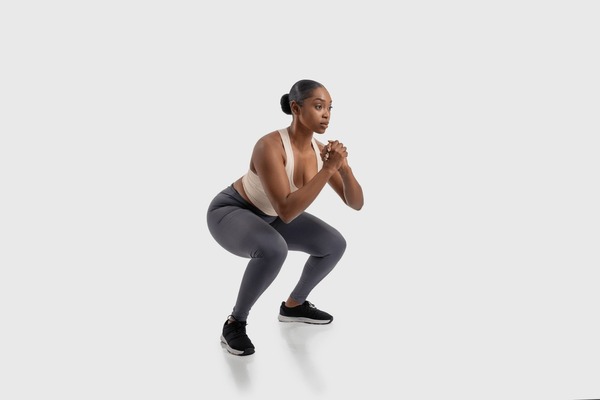
Photo Credit – Google
Resistance training plays a key role in maintaining strong bones. Gradually increasing weight or resistance helps muscles and bones adapt. Exercises such as squats and deadlifts target the hips, thighs, and spine, while lunges and step-ups build strength in the lower body and promote functional movement. Push-ups, pull-ups, and shoulder presses strengthen the upper body and spine. Two to three sessions per week covering all major muscle groups are sufficient. Free weights, resistance bands, or bodyweight exercises can all be effective depending on what equipment is available.
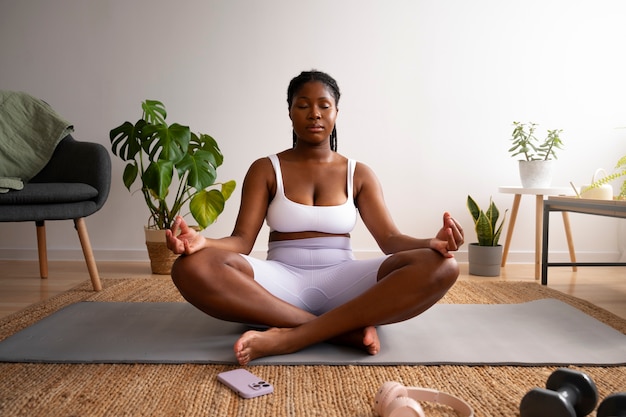
Photo Credit – Google
Balance is equally important because falls are a leading cause of fractures. Single-leg stands and heel-to-toe walking improve stability and coordination, while yoga, Tai Chi, or mobility exercises enhance control and complement other workouts. Integrating balance with strength and weight-bearing exercises provides a complete approach to bone health.
Common mistakes include relying solely on low-impact cardio such as swimming or cycling, which has little effect on bone density, and attempting high-impact exercises without preparation, which can increase injury risk. Effective routines should be planned, progressive, and performed consistently to build resilience safely.

Photo Credit – Google
A sample weekly schedule could include strength-focused exercises on Monday, such as squats or step-ups, deadlifts or hip-hinge movements, and push-ups or shoulder presses. Wednesday could focus on weight-bearing activity and balance through brisk walks, single-leg and heel-to-toe drills, and light dynamic movements. Friday can target functional strength with lunges or carries using household objects, core stability exercises, and stretching or yoga. This cycle can be repeated weekly, increasing load or complexity gradually.
Strong bones require intentional, evidence-based exercise. By combining weight-bearing activity, resistance training, and balance work, Nigerians can maintain bone density, reduce fracture risk, and improve overall skeletal resilience. Starting at your current fitness level, increasing load progressively, and including balance exercises will help protect bones for the long term.
Health
Disordered Eating Vs. Eating Disorder: Experts Explain The Differences And When To Seek Help

Disordered eating and clinical eating disorders are not interchangeable. Disordered eating refers to irregular or emotionally influenced habits around food: chronic dieting, skipping meals, rigid food rules, occasional binge episodes or persistent preoccupation with calories, weight or body shape. These habits may shift, but when repeated over time they often point to growing vulnerability.
Clinical eating disorders, by contrast, are diagnosed mental-health or medical conditions marked by persistent, patterned behaviours that impair physical health, mental wellbeing or daily functioning. Conditions such as anorexia nervosa, bulimia nervosa, binge‑eating disorder and other specified feeding or eating disorders fall into this category.

Image: Google
Evidence from Nigerian research confirms that disordered eating attitudes and risk for eating disorders are present among young adults and adolescents. In a study of more than 1,050 undergraduates from two higher‑education institutions in Lagos, roughly 16 percent scored positive on the EAT‑26 screening tool for disordered eating attitudes.
At a university in Ile‑Ife, a survey of female undergraduates found that 17.1 percent were classified as at high risk for eating disorders, based on the same screening instrument.
A more recent analysis among female undergraduates in Lagos found a lower prevalence of disordered eating (about 5 percent). Still, the study flagged a strong association between body-image dissatisfaction, body‑mass index (BMI) and disordered eating attitudes.
Adolescents are not exempt: a survey of 13 to 19-year-olds in Ibadan used screening tools to assess disordered eating behaviours and feeding/eating disorders. Results showed that 28.2 percent exhibited disordered eating behaviours, and a significant portion also met screening criteria for feeding/eating disorders.

Image credit: Google
Clinical, clearly diagnosed cases have also been documented. There’s a recorded instance of a 20-year-old undergraduate at a Nigerian university diagnosed with anorexia nervosa showing that what may start as dieting or food anxiety can escalate into serious health and psychiatric risk.
Because disordered eating and eating disorders exist within the Nigerian context, distinguishing between them matters. Persistent preoccupation with food, weight or body shape; regular dieting, bingeing or purging; emotional distress tied to eating; and disruption of everyday life are all red flags. When those signs persist, seeking professional support whether nutritional counselling, psychological therapy or medical care becomes essential.
Health
The Exercise That Keeps You Younger

If you’ve ever met someone in their fifties who moves like they’re still in their twenties, it’s likely they’ve discovered the simple habit that keeps the body from giving in to age: regular movement.

While fitness trends keep changing, one form of exercise has stayed constant in its benefits: strength training. It’s not about building bulky muscles or chasing a perfect body. It’s about keeping your bones strong, your joints stable, and your metabolism from slowing down. After the age of 30, the body naturally begins to lose muscle each year. That’s why everyday tasks, like climbing stairs or carrying groceries, start to feel heavier. Strength training helps reverse that.

Research supports this claim. People who lift weights or engage in resistance exercises have lower risks of diabetes, heart disease, and cognitive decline. But beyond the science, it’s about how it makes you feel. Nigerians juggling work, traffic, and family life know how draining each day can be. Even short sessions of body-weight squats, lunges, or push-ups a few times a week can recharge you better than most expensive wellness fads.

It also boosts your mood. Physical activity releases chemicals that help clear mental fog and lift your energy. It’s your body’s way of proving it still has strength to give.
You don’t need a gym to start. A mat, a pair of dumbbells, or even two water bottles will do. The goal is to stay consistent, to keep your body active enough to stay responsive.
Each push, lift, or stretch is a reminder that staying young isn’t about denying age; it’s about moving through it with strength.
-

 Sex & Relashionships5 months ago
Sex & Relashionships5 months agoSigns You Have Abandonment Issue and How to Heal
-

 Music5 months ago
Music5 months agoKokopee Drops EP ‘All I Need It’s Kokopee
-

 Celebrity News5 months ago
Celebrity News5 months agoAsake Shows off New Hair on Stage
-

 Movies4 months ago
Movies4 months agoMovie Review: Task Official Trailer
-

 Top Xclusiv4 months ago
Top Xclusiv4 months agoItalian Designer Giorgio Armani Dies at 91
-

 Music4 months ago
Music4 months agoAyra Starr – Hot Body Video Review
-

 Celebrity Style4 months ago
Celebrity Style4 months agoEniola Badmus Creates a Deck-of-Cards Visual in Photoshoot
-

 Fashion5 months ago
Fashion5 months agoFive Mini Outfits From Esther Morgan That Are Screenshot Worthy
-

 Fashion5 months ago
Fashion5 months agoHue by Idera Unveils Captivating New Campaign
-

 Fashion5 months ago
Fashion5 months agoWhen Modern Meets Tradition: Nengi Hampson’s Stunning Look.









